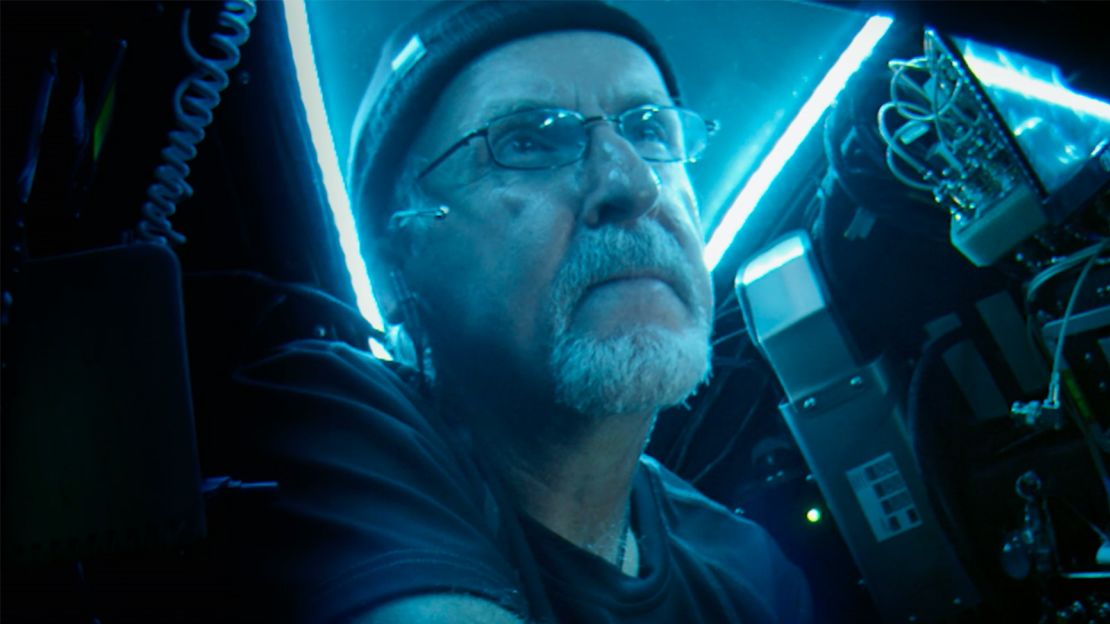Before the perpetual dark of the deep sea, in the space at the final reaches of daylight, is the ocean twilight zone.
It is one of the final frontiers for Earth exploration, and as researchers delve deeper into this mysterious region, it is becoming clear that the animals that inhabit it play a critical role in regulating the Earth’s climate.
When he isn’t directing movies, filmmaker James Cameron explores and studies the twilight zone. His missions there have shed new light on this carbon-sequestering environment in the inky abyss, populated with beautiful and bizarre creatures that wouldn’t look out of place in one of Cameron’s sci-fi epics.
CNN spoke to Cameron about why he wants to preserve this region and the animals that inhabit it.
The following interview has been edited for length and clarity.
CNN: What makes the ocean twilight zone worth protecting?
James Cameron: The twilight zone is an amazing place. It’s the largest biomass on the planet and in my eight expeditions to deep ocean sites, I’ve gone back and forth through it and I’ve seen fleetingly these amazing animals.
It’s very important because you’ve got the largest mass migration of animal life on the planet that goes up and down every single day. Hundreds of millions of tons of mass moving up and down. They go up near the surface to feed at night, and then they scurry back down into the black depths in the daytime so that they don’t get seen by predators and eaten. It acts as this giant carbon pump that’s pulling carbon out of the atmosphere and taking it down into the deep ocean. It’s like a giant sequestration process.
CNN: What is unique about the ecosystem that exists in this space?
You have amazing fish, but some of the invertebrates are pretty darn spectacular.
I saw jellyfish almost two meters in diameter once – a very rare specimen that had never been captured. And you see amazing squid, the Humboldt squid, which are very aggressive pack hunters, down to the tiniest bioluminescent animals. If you flash a strobe into the darkness in the twilight zone, you get answered by literally millions of creatures that light up in response. It’s quite stunning.
The weird and wonderful world of the ocean twilight zone
CNN: What can we learn from the twilight zone?
James Cameron: Humans have an almost perfect record for going into new environments and basically destroying them. The fisheries of the world are starting to turn their attention to the twilight zone because of all this biomass that’s down there. They don’t normally fish that deep. And so, as it starts to become exploited, we need to understand its role in our greater global ecosystem and its role in controlling climate.
Because clearly if it’s sucking, let’s say, a gigaton of carbon out of the atmosphere a year – about the same as all the automobiles (emit) – we need to protect it. It’s doing a service for us and for the world at large.
We tend to utilize or extract first and ask questions later. It’s important to have the science get in there, study it, understand it – understand this carbon flux, understand the heat flux down into the deep ocean, understand how the ocean is working for us every single day so that we don’t upset that that balance.
It’s probably a fairly robust ecosystem, but we have a pretty good track record for wrecking robust ecosystems.
CNN: Are you optimistic for the future of the environment?
James Cameron: All of these initiatives (world leaders) are talking about – controlling methane and pricing carbon and all that. They have to put teeth into it, there has to be real legislation around it. Just pledging things and then not fulfilling isn’t going to get us there.
I tend to be pessimistic about political systems and about human systems in general, but I’m optimistic about human beings. We’re resourceful. When our back’s against the wall, I believe we can team together to come up with the solutions necessary. And I believe we will be willing to make the changes to our lifestyle that we’re going to need to make.

CNN: How has your ocean exploration changed the way you live on land?
James Cameron: I think that they’ve given me a sense of perspective and a greater sense of awe and wonder and respect for nature. And that’s translated into me trying to live my life with the lightest footprint that I can and still accomplish my goals.
For example, my whole family went completely vegan – we have about one third of the carbon footprint in terms of our nutrition as a non-vegan, as somebody who is on let’s call it the standard American diet. That’s a big step that anybody could take.
I think everybody needs to internalize these choices and take responsibility.
Read: Saving California’s kelp forests from ‘zombie’ urchins
CNN: How do you draw attention to environmental issues through filmmaking?
James Cameron: If we can make a distinction, on the documentary side, I’ve done a number of documentaries about the ocean and ocean conservation. A recent one with National Geographic was “Secrets of the Whales”, which gets into the minds and the emotions and the culture of whales, so that if we love them and we respect them, we’ll defend them.
And then on the feature side, with the “Avatar” films there’s definitely an environmental message sort of between the lines. We don’t beat it over the head, it has to be entertainment first, but it’s definitely there if you’re looking for it, if you’re receptive to it.
CNN: Do you think people understand enough about what the oceans mean to our lives?
James Cameron: I don’t think somebody, let’s say a farmer in the Midwest, really understands the role of the ocean in their daily life – how it controls the amount of rainfall that they get, how it controls the climate in general.
The average person doesn’t really know this stuff, which is why I think it’s important for us to do what we’re doing right now. To try to share that nobody anywhere on the planet, even if you’re in the depths of the Sahara, is untouched by the ocean’s role in their life.




















